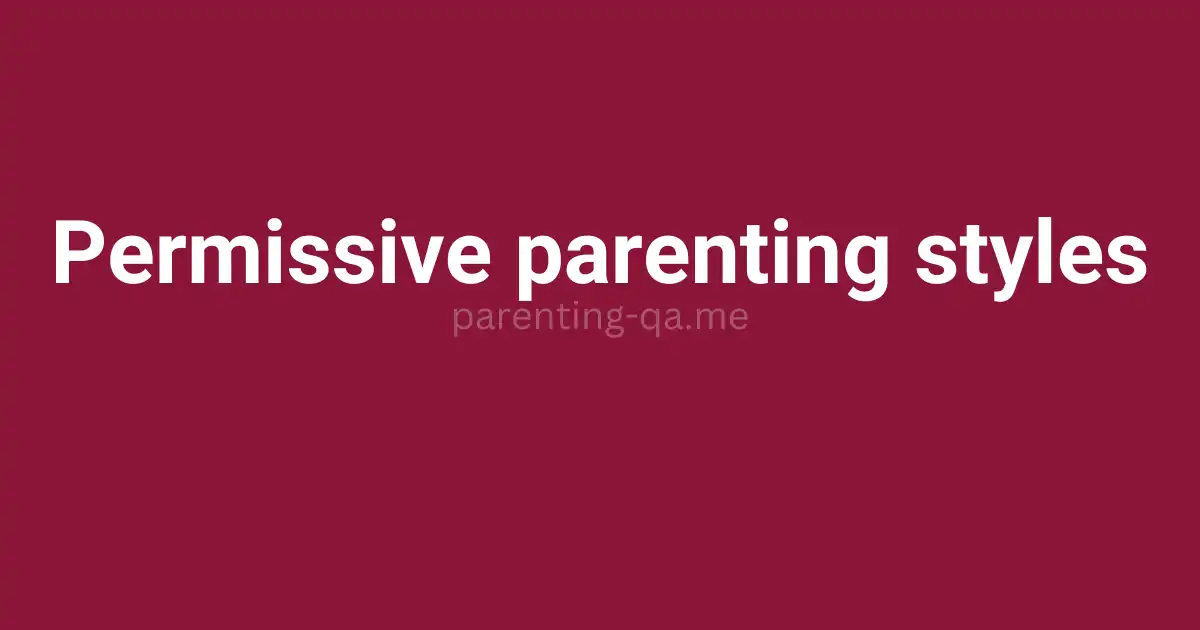Permissive parenting styles
Permissive Parenting Style
Permissive parenting is characterized by a lenient approach, with parents having few rules or expectations. They often act more like friends than authority figures to their children.
Key Characteristics of Permissive Parenting
- Few Rules: Permissive parents often avoid setting strict rules or enforcing them consistently.
- Minimal Discipline: They may avoid using punishment or discipline altogether.
- Indulgence: They often indulge their children’s desires and may be overly lenient.
- Lack of Guidance: They may be less involved in their children’s lives and provide minimal guidance or supervision.
Potential Consequences of Permissive Parenting
- Lack of Self-Discipline: Children raised in permissive environments may struggle with self-discipline and responsibility.
- Emotional Immaturity: They may have difficulty regulating their emotions and may be more prone to impulsive behavior.
- Academic Difficulties: They may face challenges in school due to a lack of structure and motivation.
- Social Problems: They may have difficulty forming healthy relationships with peers and authority figures.
While permissive parenting can foster creativity and independence in some cases, it can also lead to negative consequences. A balance between permissiveness and structure is often considered ideal for child development.
Maccoby and Martin parenting styles
Maccoby and Martin’s Parenting Styles
Eleanor Maccoby and John Martin, building upon the work of Diana Baumrind, expanded on the existing framework of parenting styles.They proposed a fourth style, uninvolved or neglectful parenting, to better categorize parental behaviors.
The four primary parenting styles identified by Maccoby and Martin are
- Authoritarian: Parents are highly demanding but low in responsiveness.They expect obedience without explanation and often use punishment as a primary disciplinary tactic
- Authoritative: Parents are both demanding and responsive.They set clear expectations but also listen to their children’s perspectives and provide explanations for their rules.
- Permissive: Parents are low in demandingness but high in responsiveness.They are lenient and often avoid conflict, allowing their children significant freedom.
- Uninvolved: Parents are low in both demandingness and responsiveness.They are detached from their children’s lives and provide minimal guidance or support.
Research findings generally suggest that authoritative parenting is often associated with the most positive outcomes for children, including higher self-esteem, better academic performance, and stronger social skills.However, it’s important to note that individual experiences and cultural factors can influence the impact of parenting styles on child development.
Would you like to know more about the specific characteristics or potential outcomes associated with any of these parenting styles?
